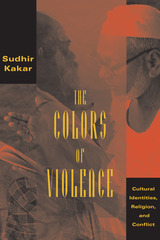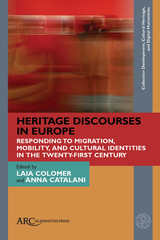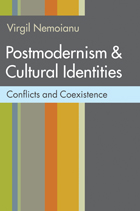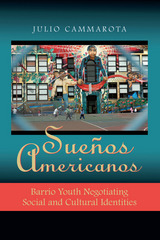4 books about Cultural Identities

The Colors of Violence
Cultural Identities, Religion, and Conflict
Sudhir Kakar
University of Chicago Press, 1996
For decades India has been intermittently tormented by brutal outbursts of religious violence, thrusting thousands of ordinary Hindus and Muslims into bloody conflict. In this provocative work, psychoanalyst Sudhir Kakar exposes the psychological roots of Hindu-Muslim violence and examines with grace and intensity the subjective experience of religious hatred in his native land.
With honesty, insight, and unsparing self-reflection, Kakar confronts the profoundly enigmatic relations that link individual egos to cultural moralities and religious violence. His innovative psychological approach offers a framework for understanding the kind of ethnic-religious conflict that has so vexed social scientists in India and throughout the world.
Through riveting case studies, Kakar explores cultural stereotypes, religious antagonisms, ethnocentric histories, and episodic violence to trace the development of both Hindu and Muslim psyches. He argues that in early childhood the social identity of every Indian is grounded in traditional religious identifications and communalism. Together these bring about deep-set psychological anxieties and animosities toward the other. For Hindus and Muslims alike, violence becomes morally acceptable when communally and religiously sanctioned. As the changing pressures of modernization and secularism in a multicultural society grate at this entrenched communalism, and as each group vies for power, ethnic-religious conflicts ignite. The Colors of Violence speaks with eloquence and urgency to anyone concerned with the postmodern clash of religious and cultural identities.
With honesty, insight, and unsparing self-reflection, Kakar confronts the profoundly enigmatic relations that link individual egos to cultural moralities and religious violence. His innovative psychological approach offers a framework for understanding the kind of ethnic-religious conflict that has so vexed social scientists in India and throughout the world.
Through riveting case studies, Kakar explores cultural stereotypes, religious antagonisms, ethnocentric histories, and episodic violence to trace the development of both Hindu and Muslim psyches. He argues that in early childhood the social identity of every Indian is grounded in traditional religious identifications and communalism. Together these bring about deep-set psychological anxieties and animosities toward the other. For Hindus and Muslims alike, violence becomes morally acceptable when communally and religiously sanctioned. As the changing pressures of modernization and secularism in a multicultural society grate at this entrenched communalism, and as each group vies for power, ethnic-religious conflicts ignite. The Colors of Violence speaks with eloquence and urgency to anyone concerned with the postmodern clash of religious and cultural identities.
[more]

Heritage Discourses in Europe
Responding to Migration, Mobility, and Cultural Identities in the Twenty-First Century
Laia Colomer
Arc Humanities Press, 2020
Debates about migration and heritage largely discuss how newcomers integrate into the host societies, and how they manage (or not) to embrace local and national heritage as part of their new cultural landscape. But relatively little attention has been paid to how the host society is changing culturally because its new citizens have collective memories constructed upon different geographies/events, and emotional attachments to non-European forms of cultural heritages.
This short book explores how new cultural identities in transformation are challenging the notions and the significance of heritage today in Europe. It asks the questions: How far are contemporary Authorized Heritage Discourses in Europe changing due to migration and globalization? Could heritage sites and museums be a meeting point for socio-cultural dialogue between locals and newcomers? Could heritage become a source of creative platforms for other heritage discourses, better "tuned" with today’s European multicultural profile?
[more]

Postmodernism and Cultural Identities
Conflicts and Coexistence
Virgil Nemoianu
Catholic University of America Press, 2010
Virgil Nemoianu's book starts from the assumption that, whether we like it or not, we live in a postmodern environment, one characterized by turbulence, fluidity, relativity, commotion, uncertainty, and lightning-fast communication and change.
[more]

Sueños Americanos
Barrio Youth Negotiating Social and Cultural Identities
Julio Cammarota
University of Arizona Press, 2012
Education is a primary route to rewarding employment and economic security. It is particularly significant for the future prospects of children who are ethnic minorities, were born into disadvantaged economic circumstances, or are dealing with language barriers.
For nearly a decade Julio Cammarota interviewed and observed Latino youth between the ages of seventeen and twenty-four who lived in a barrio in a city on the California coast. He conducted forty life interviews, selecting six people to investigate in depth. Twenty of the study participants worked at a fast-food restaurant, while the other twenty worked at a community cultural center.
Focusing on the experiences of his subjects in the primary settings of family, work, and school, Cammarota structured his research to examine how Latino youth negotiate myriad social conditions and hostile economic and political pressures in their daily lives. His extensive interviews and incisive analyses illuminate the complex relationships among low-wage employment, cultural standards, education, class oppression, and gender expectations.
Among other topics, Cammarota investigates how working affects Latino education; how gender influences social relationships and life choices; how Latinos and Latinas try to maintain their distinct ethnic identity while attempting to transcend marginalization; whether the Latino culture helps young people work hard for their families and for a better future; and how the connections and disconnections among work, family, and school constitute formative processes that shape the cultural identities of Latino youth.
One of the most extensive studies of barrio youth available, Sueños Americanos concludes with a discussion of social justice education for Latino youth and how this educational approach meets their academic needs while providing opportunities for self-determination and community activism.
For nearly a decade Julio Cammarota interviewed and observed Latino youth between the ages of seventeen and twenty-four who lived in a barrio in a city on the California coast. He conducted forty life interviews, selecting six people to investigate in depth. Twenty of the study participants worked at a fast-food restaurant, while the other twenty worked at a community cultural center.
Focusing on the experiences of his subjects in the primary settings of family, work, and school, Cammarota structured his research to examine how Latino youth negotiate myriad social conditions and hostile economic and political pressures in their daily lives. His extensive interviews and incisive analyses illuminate the complex relationships among low-wage employment, cultural standards, education, class oppression, and gender expectations.
Among other topics, Cammarota investigates how working affects Latino education; how gender influences social relationships and life choices; how Latinos and Latinas try to maintain their distinct ethnic identity while attempting to transcend marginalization; whether the Latino culture helps young people work hard for their families and for a better future; and how the connections and disconnections among work, family, and school constitute formative processes that shape the cultural identities of Latino youth.
One of the most extensive studies of barrio youth available, Sueños Americanos concludes with a discussion of social justice education for Latino youth and how this educational approach meets their academic needs while providing opportunities for self-determination and community activism.
[more]
READERS
Browse our collection.
PUBLISHERS
See BiblioVault's publisher services.
STUDENT SERVICES
Files for college accessibility offices.
UChicago Accessibility Resources
home | accessibility | search | about | contact us
BiblioVault ® 2001 - 2024
The University of Chicago Press









